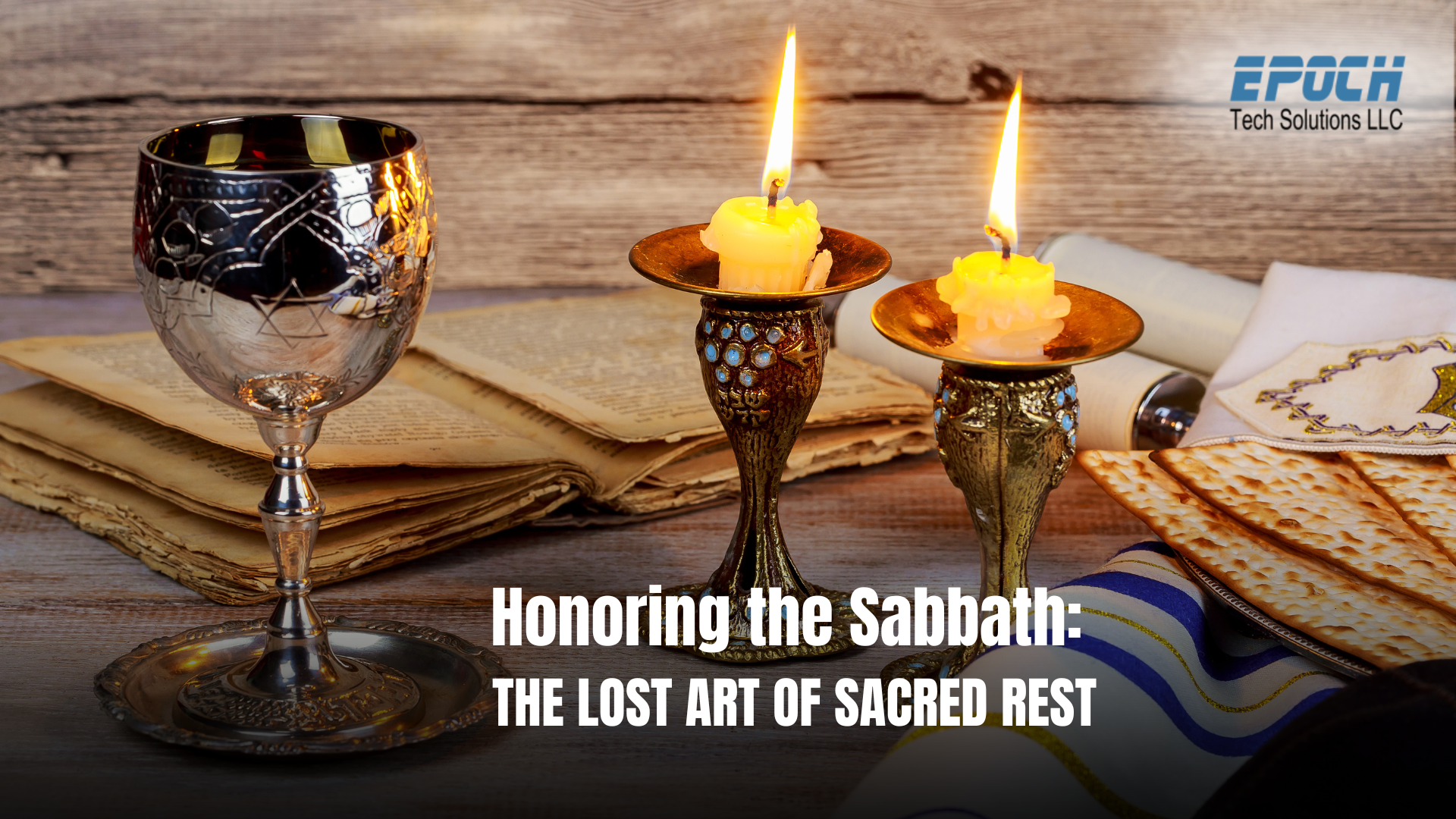
There was a time when Sundays (or Saturdays, depending on one’s faith) sounded different. The air felt slower. Streets were quiet. Families gathered around tables instead of screens. Stores shut their doors not because of policy, but principle. Somewhere between the noise of modern life and the obsession with productivity, that rhythm faded, replaced by hustle disguised as virtue.
Today, honoring the Sabbath isn’t just a religious commandment; it’s an act of rebellion against burnout culture. It’s permission — no, it’s instruction — to stop trying to be your own god of efficiency for a day and remember who actually is.
In the book of Genesis, God Himself rested on the seventh day — not out of exhaustion, but to model completion. The Sabbath was never meant to be a “rule to follow,” but a rhythm to live by. The fourth commandment didn’t say “if you feel like it” or “when convenient”; it said “remember.” And in a world addicted to forgetting, that word carries weight.
To keep the Sabbath holy means to set it apart. To step out of the current of chaos and enter stillness — sacred, unproductive stillness — where you remember that your worth isn’t measured by output but by belonging.
Honoring the Sabbath isn’t about what you can’t do; it’s about what you get to do. You get to rest. You get to worship. You get to eat meals without rushing. You get to be still long enough to hear your own soul breathe.
For some, this means ceasing from all work from Friday sunset to Saturday sunset. For others, it’s a Sunday morning of quiet prayer followed by a long, slow family lunch. However it looks, it begins with intention — preparing beforehand so that when the day arrives, your spirit doesn’t feel rushed into rest.
Set the table, light the candle, close the laptop, silence the notifications. Let the day breathe.
One small business owner once shared that she decided to completely unplug every Sunday — no emails, no client calls, no marketing analytics. The first week, it felt impossible. By week three, it felt divine.
Her conclusion? Productivity on Monday doubled. Creativity returned. But more than that, peace returned. “It wasn’t just rest,” she said. “It was remembering I’m more than my business.”
A family of five described their Sabbath ritual as “holy chaos.” They bake bread together, leave phones in a drawer, and play board games until bedtime. No TV, no errands, no “just one quick email.”
“It’s the only day of the week that feels real,” they said. “The laughter is louder, the conversations slower. It’s not about being religious — it’s about being human again.”
Theologians and mental health experts agree on one thing: human beings were not designed for perpetual motion. The Sabbath serves a dual purpose — spiritual renewal and emotional recovery.
Dr. Marissa Lee, a Christian psychologist, puts it this way:
“The Sabbath is God’s built-in safeguard against burnout. When people neglect it, their sense of identity becomes tangled in performance. When they keep it, they rediscover peace, purpose, and perspective.”
Even in corporate circles, “Sabbath principles” are finding their way into leadership discussions. The message is clear: even businesses thrive when people rest.
Honoring the Sabbath isn’t about religion versus routine. It’s about remembering that you are finite — and that’s the point. It’s about resisting the world’s obsession with endless striving and embracing divine rhythm instead.
The Sabbath isn’t a day off; it’s a day set apart. A time when heaven and earth meet quietly over a shared meal, a prayer, or a simple nap that feels like worship.
To honor the Sabbath is to say, “Enough has been done.” It’s to rest because God rested — and because rest itself is holy.
If your life feels like a string of open tabs that never close, maybe it’s time to observe what’s been sacred all along — a day made not for duty, but for delight.
Take time to rest, reflect, and renew.
And if your business needs help balancing technology with the human touch — where systems serve people, not the other way around — we’re here to help.
Contact Epoch Tech Solutions today for a free consultation:
https://www.epoch-techsolutions.com/contact-us
Hashtags:
#community #epochtech